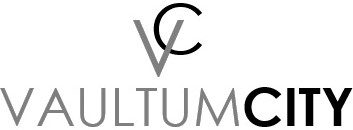Instant messaging apps used by businesses have been under a lot of scrutiny lately. Why?
First, it turned out that regular messaging apps, such as WhatsApp, aren’t compliant with regulations and can’t be audited. Then, when organizations switched to communication tools for businesses, like Microsoft or Slack, the tools got heavily targeted with cyberattacks, and their security got breached.
Now, businesses using Slack are in a panic mode again as they find out that Slack has been using their data to train AI and machine learning models without users’ knowledge. How? Simply by making the opt-in a default option.
These are just a few reasons why companies need to switch to truly secure business messaging (if they want to keep their data secure). Let’s look at how you can ensure data security when using business messaging apps.
Contents
Regular messaging apps VS secure messaging apps for business
The best way to keep your data secure is to own it
Secure Messaging 2024: Maximum security and data sovereignty
Regular messaging apps VS secure messaging apps for business
It’s clear that many instant messaging apps we know from our daily lives, like WhatsApp or Discord, aren’t suitable for business communications. Especially if you’re discussing business-sensitive or confidential information, need to go through regular auditing, or your industry authorities require you to be compliant with regulations.
Then there are applications adapted for enterprises, such as Slack, that might offer many features you are looking for: security, like integration with other productivity tools. The problem is that these platforms aren’t developed with a security-first mindset as the recent news mentioned above showcases). This means that your company is by default opted-in for surprising data collecting features, upgrading security levels might come with a price tag, and configuring advanced security measures might be complex.
In comparison, secure business messaging applications have security built into them – they offer maximum security by default. At the same time, these secure messaging tools are developed with heavily regulated industries in mind, so they offer full auditing as well as full data sovereignty. The latter is a requirement for many heavily regulated industries (e.g. healthcare or governmental bodies).
The best way to keep your data secure is to own it
A crucial aspect of keeping your data secure is considering where the data lives, where it is stored. This is called data sovereignty. Depending on your data sovereignty needs and industry regulations, you might have several options, such as public cloud, private cloud, self-hosted server.
However, the best way to keep your data secure is to own it and store it so that your service provider (messaging application) can’t access it. Meaning, only your business can read, audit, and report on the messages and files shared – using servers that are under your control.
What’s more, you exchange private encryption keys before initiating the conversation with your co-communicator. Sounds technical but it’s easy. It’s like a secret handshake between the two of you to make sure that the conversation stays protected.
In the case of Slack, the company accessed messages in group chats, direct messages, and files of their customers to train their AI/ML models. Their service is also available as SaaS-only.
Secure Messaging 2024: Maximum security and data sovereignty
Our Secure Messaging is a secure business messaging application for real-time communications over end-to-end encrypted chats, audio and video calls, and file sharing. The solution allows you to build your own authorized channels for compliance and record-keeping.
Secure Messaging offers strong data sovereignty features. It gives you full control over your data. You decide where the application is deployed (in the cloud or on-premises). For example, by using a self-hosted server, you maintain full control over all messages and shared files.
Even we as the solution provider at SSH Communications Security can’t access any of your messages, files, or other data.
In Secure Messaging, security is not opt-in, it’s always built-in.
Learn more about Secure Messaging here >>>
Disclaimer: This article is sourced from the official SSH website. As official partners of SSH, we have obtained permission to utilize both articles & resources for further updates with regards to SSH’s products.
